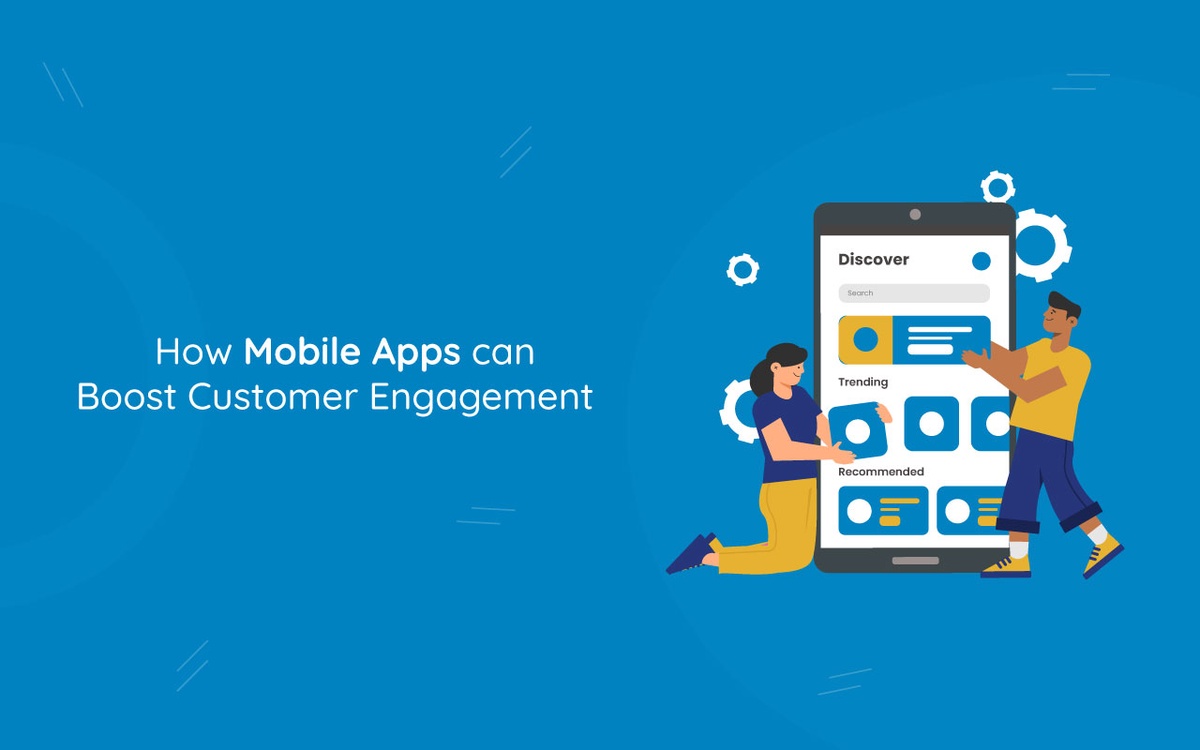Welcome to the digital era, where smartphones have become an indispensable part of our lives. With millions of mobile apps available at our fingertips, businesses have harnessed this technology to elevate customer engagement to new heights. Whether you’re a small startup or a global conglomerate, embracing mobile apps development can prove to be a game-changer for your business.
Let’s peep into the fascinating world of mobile apps and explore how they can significantly boost customer engagement. Through compelling statistics and real-life examples, we’ll reveal the secrets behind successful app-driven customer engagement strategies.
So, get ready to unlock the potential of mobile apps development and witness your business flourish like never before!
Personalization: The Key to Winning Hearts
As customers, we all crave personalized experiences. Mobile apps development have transformed how businesses interact with their users by offering tailored content and recommendations based on individual preferences.
According to SmarterHQ, 72% of consumers assert that they only engage with personalized messaging. This underscores the importance of incorporating personalization into your mobile app strategy.
Example: Amazon: The e-commerce giant is renowned for its personalized recommendations. By analyzing users’ browsing and purchase histories, Amazon’s mobile app suggests relevant products, making the shopping experience feel exclusive to each customer.
Push Notifications: A Direct Line of Communication
Push notifications serve as a powerful tool for keeping customers engaged and informed in real time. Studies reveal that personalized push notifications can lead to a 4x increase in open rates. However, it is a must to strike a balance and avoid overwhelming users with excessive notifications.
Example: Starbucks: The Starbucks app masters the art of push notifications. It sends timely alerts about new offers, rewards, and even order status updates, enticing customers to visit their stores more frequently.
Gamification: Turning Engagement into Fun
Humans are naturally drawn to games and challenges. By incorporating gamification elements into your mobile app, you can transform mundane tasks into enjoyable experiences. A report by eMarketer found that gamified mobile apps see a 3x increase in the average time spent on the platform.
Example: Duolingo: This language-learning app uses gamification to motivate users to complete their daily lessons. Points, streaks, and rewards keep learners engaged, leading to consistent app usage.
Loyalty Programs: Rewarding Customer Engagement
Loyalty programs have been around for ages, but mobile apps have breathed new life into them. Digital loyalty programs are more convenient for customers and allow businesses to gather valuable data on consumer behavior. A study by HelloWorld found that 79% of consumers are more likely to participate in a loyalty program if it’s available on their smartphone.
Example: Sephora: The beauty retailer’s Beauty Insider program offers customers exclusive rewards and personalized offers through their app. This strategy has significantly boosted customer retention and increased overall spending.
Seamless User Experience: The Glue That Binds
A clunky and confusing app can drive users away faster than you can say, “uninstall.” A seamless and intuitive user experience is paramount to keeping customers engaged. In fact, 90% of users will stop using an app due to poor performance.
Example: Uber’s app is a paragon of simplicity and efficiency. With just a few taps, users can request a ride, track the driver, and pay seamlessly. This frictionless experience keeps customers loyal to the platform.
Social Integration: The Power of Community
Incorporating social elements into your app can foster a sense of community and drive
engagement. The social aspect permits users to connect with others, share experiences, and even compete, boosting user retention.
Example: Strava, a fitness-tracking app, allows users to connect with friends, share workout achievements, and even compete on leaderboards. This social aspect motivates users to stay active and engaged with the app.
Augmented Reality (AR): Enhancing Real-World Interactions
Augmented reality adds a touch of magic to the user experience, merging the digital world with
reality. Businesses have harnessed AR to engage customers in unique and immersive ways.
Example: IKEA Place: IKEA’s AR app allows users to visualize how furniture will look in their homes before buying. This interactive experience adds value to the customer journey and drives app downloads.
Conclusion: Embrace the Mobile App Development Engagement Revolution.
Mobile apps development have proven to be a driving force in revolutionizing customer engagement strategies. By leveraging personalization, push notifications, gamification, loyalty programs, a seamless user experience, social integration, and augmented reality, businesses can create memorable and interactive experiences for their customers.
Embrace the app engagement revolution, and you’ll find yourself at the forefront of a customer-centric world where loyalty and satisfaction soar, leading to unprecedented success in the digital age.
So, what are you waiting for? Start crafting your app-driven customer engagement strategy with Meghsundar’s experts and your business flourish like never before!


No comments yet